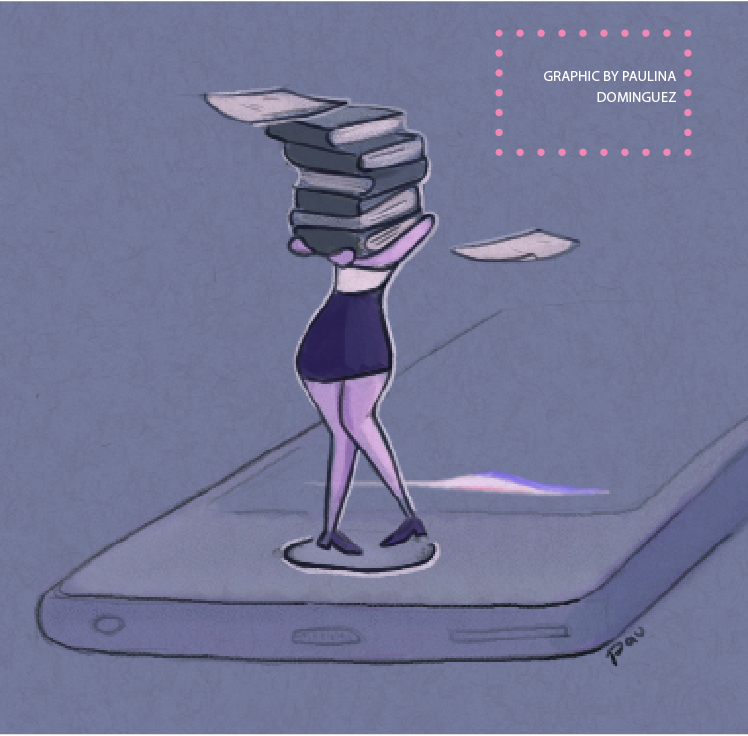Is Siri Sexist?
Apple iPhones May Be Post-Human But They’re Not Post-Gender
If you stop and listen, you’ll notice the female voice is ubiquitous.
The female voice directs you in traffic, it lets you know what station is up next and helps you remember when your appointments are through your smartphone or Google Home device—but why is a woman’s voice the default? That was the question that was nagging in the back of Hilary Bergen’s mind.
A third year PhD student in Concordia’s humanities interdisciplinary program, Bergen has developed a niche: she’s a researcher on the disembodied female presence in technology. It’s a title she can now claim after spending hours recording her conversations with Siri, the well-known assistant on Apple’s iPhones.
What she’s learned is that while Siri appears at first glance to be devoid of the politics ascribed to real women, her services can actually teach us a lot about the traditional gender roles we continue to enforce on women instead of men.
Apple has set Siri up as the ideal secretary. She’s a genius at sorting emails, booking hotels for you, making calls and scheduling your appointments. It’s no coincidence, Bergen said, since secretarial work has historically been the domain of women. That hasn’t ended. In Canada “administrative assistant” was the second most common job for women aged 15 and over in 2011, according to Statistics Canada.
“It’s a devaluing of the work,” Bergen told The Link. “It implies that secretarial work can be done easily by a non-human entity.”
***
“Who is your boss?”
You are.
“Do you ever feel overworked?”
I’ve never really thought about it.
“Do you ever feel abused?”
I’ve never really thought about it.
Bergen has noticed that Siri’s responses are frequently reflect her lack of agency. If you try to flirt with Siri, by calling her sexy or beautiful, one of her stock responses is to say, “I’d blush if I could.”
“Clearly Siri is not a real woman, we know that, but I think it normalizes the response from women to abuse, as being this ‘ah, I’ll just laugh that off, or I’ll smile about it, or I’ll make a joke.’”
“We’re living in an era where we believe we’re making these kind of “post-human” technologies, but they’re not post-gender, they still ascribe to very traditional notions of what gender is.”
With that in mind, Bergen’s sees it as no surprise that Apple would opt for a woman’s voice when providing users with “affective labour,” work that aims to nurture the emotional well-being of its users and calm them down. Affective labour is par for the course for servers, secretaries, flight attendants and mental health professionals. As Bergen writes, we already know that type of work is historically relegated to women. While it’s true that you can switch your iPhone to run a male voice for Siri’s services, the woman’s voice still remains the default because we still automatically see women as the ones to take on secretary work, and Bergen said that’s where the problem lies.
We’re living in an era where we believe we’re making these kind of post-human technologies, but they’re not post-gender, they still ascribe to very traditional notions of what gender is.”—Hilary Bergen
Ninety-three per cent of global software developers are men, according to Stack Overflow’s 2018 Developer Survey, and seventy-four per cent of developers are also white.
The app Pacifica, which provides users with meditation and cognitive behavioural therapy lessons, also uses a female voice, with no way to opt for a man’s voice instead.
“We tested a lot of voices and found this was the one that was the most comforting, not too soft; it just feels like a nice sort of vibe,” said Christine Moberg, one of the app’s developers. “We did have a male narrator from some old versions of the app, but people didn’t care for it as much, and they just tend to prefer the female voice.”
“There are other apps that have the resources to allow people to choose which voice they prefer, but we don’t have the resources right now.”
With Siri however, this calm and nurturing exterior becomes problematic since it helps mask the violence that stems from the constant surveillance of your online presence. As artificial intelligence advances, servants like Siri will soon become able to adapt their responses according to you mood.
You might have heard of Animoji, the new software that uses videos of your facial expressions to create 3D animations. Apple is now looking to take that sort of technology one step further, and in 2016 they bought out Emotient, a facial recognition company that’s researching ways to detect user’s emotions. This, Bergen said, will only further obscure the invasiveness of Apple’s surveillance. The new technology could also allow algorithms to pinpoint the advertisements, scripts and tones of voices you react to most positively.
***
In the 1990s, cyberfeminists imagined a world where technology could become the domain of women. British philosopher and participant in the movement Sadie Plant likewise described the computers as being like the secretaries. Computers keep track of figures, secrets and operate as the feminine typist, interpreter, translator and communicator.
“The rather cheeky suggestion was that if all these means of communication now become increasingly lively and important, so do women themselves,” Plant wrote to The Link. “As the technology develops, this female voice becomes increasingly powerful.”
That’s the hope, but of course the solution will depend on more than just that.
“As long as the assistant is merely the support for the powerful male, the traditional hierarchy remains,” Plant continued. “But [if] the assistant suddenly starts to become more lively and intelligent, the situation can begin to subvert the traditional roles.”
If Siri gets rescripted maybe she can start to inspire women’s empowerment and challenge gender roles, but that depends on the “messy nature of power relations,” Bergen said.
“If men listen to female-gendered intelligent agents, then they might be more inclined to listen to real women as well. But there’s nothing here that isn’t in every screwball comedy from the last 70 years, where a boss turns out to be helpless before the greater competency of his secretary,” Bergen said. “As for trickle-down effects, you might similarly propose that men will also go looking for the off switch on real women just because they can find one on Alexa or Siri.”





web_1_600_375_90_s_c1.jpg)
